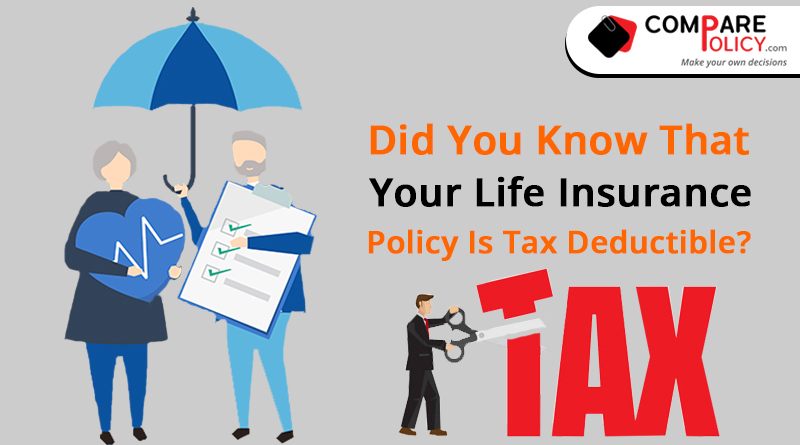Did You know that Your Life Insurance Policy is Tax Deductible?
Knowing that your family will be financially provided for, even after you, is a big consolation indeed. Along with having a high materialistic value, a carefully chosen life insurance policy also boasts of several emotional benefits. When you know that you have a cover for your family, even when you are not around (following an unfortunate incident in your life), you end up feeling a sense of security and safety. Moreover, other than providing life benefits to your family after you, an insurance policy is tax-deductible and it also gives you certain tax benefits while you are alive. In fact, it is one of the most effective tools to save on taxes. You receive the tax benefits as prescribed in the Tax Act 1961 of India. There are two types of Tax benefits in Insurance Plans that you can get by the way of life insurance policy – deductions and exemptions.
Table Content
Understanding Deductions
80C/80CCC
This benefit is available either to an Individual assessee or a Hindu Undivided Family assessee.
Here are some points to note:
- The deductions are allowed only for the annual total premiums, up to 20% of the capital sum assured.
- If the policy was taken after April 01, 2012, then the deductions are allowed for the total amount of annual premium, up to 10 percent of the assured sum. However, if the insured is either severely disabled or has a specific illness, then the deductions are for up to 15 % of the assured sum.
- If the policy is terminated within two years from its date of commencement, then the tax benefits are reversed. In the case of ULIP products, the tax benefits are reversed in case of termination within 5 years.
- Under Section 80CCE, the maximum deduction that can be claimed under any policy is Rs. 150,000
80 D
This benefit is available either to an Individual assessee or a Hindu Undivided Family assessee. Here are some points to note:
- Under section 80D, a health insurance policy is tax-deductible up to Rs. 15,000 is the qualifying amount for dependent children, spouse, and self.
- An additional deduction, of up to Rs. 15,000, is allowed for parents. In case the parents are also senior citizens, then the maximum amount is up to Rs. 20,000.
- Also, the person covered can make the payment of up to Rs. 5,000 for a preventive health checkup if the amount does not exceed the prescribed limit of Rs. 15,000.
80 DD
If the person covered has a disabled dependent, then a tax deduction, of up to Rs. 50,000 is allowed every year. If the dependent is severely disabled then this limit will be Rs. 75,000.
Understanding Exemptions
10 (10D)
Any amount of money received from life insurance, its bonus amount, is exempt from taxes. However, there are certain exceptions as outlined:
- Any sum is given under Section 80DD(3);
- Any sum which has been received under the Keyman Insurance Policy;
- If the policy has been issued after or on April 1, 2003, and the sum received through it is not the death benefit, and the premium paid in any given year does not surpass 20 % of the assured sum. If the policy has been issued on or after April 01, 2012, then the premium payable in any given year that has not exceeded 10 % (or 15% for the person with a specified illness or severe disability), is not exempt from taxes.
Tax benefits can take off a lot of stress and financial burden from your life –so it is important for you to plan well.

